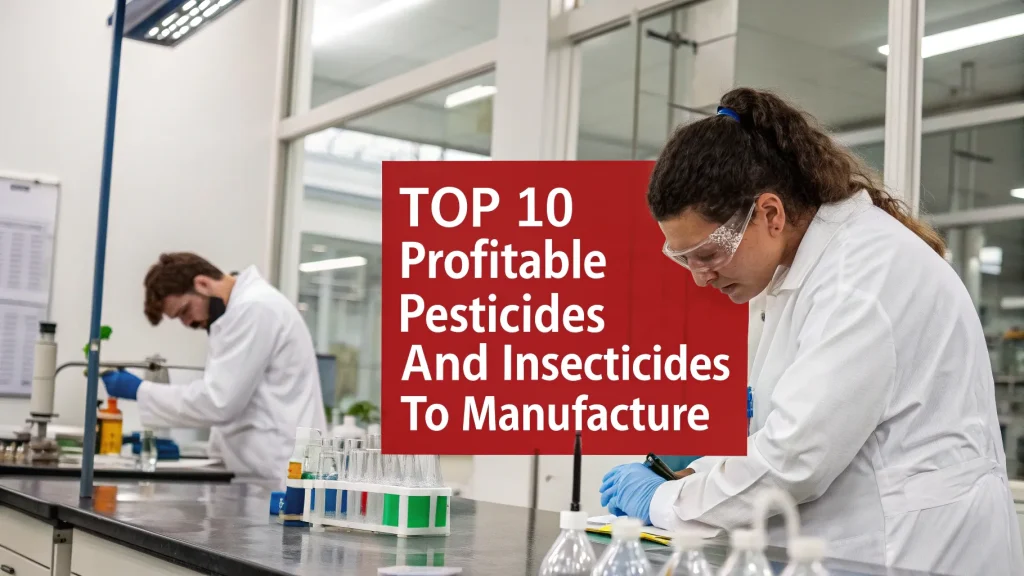Ginger essential oil is gaining immense popularity across the world due to its therapeutic benefits, aromatic appeal, and use in wellness products. From aromatherapy to natural medicine, ginger essential oil is witnessing demand in personal care, pharmaceuticals, and even the food industry. With the rise in natural and organic products, the ginger essential oil business is turning into a lucrative opportunity for entrepreneurs. In 2025, the market dynamics, consumer preferences, and health-conscious lifestyles are all aligned to support the growth of this niche industry.
See Also: Start Meat Processing Business
Rising Demand and Growth Opportunities in the Ginger Essential Oil Business
The ginger essential oil business is backed by strong consumer trends. More individuals are switching to plant-based remedies and holistic wellness, which increases the use of essential oils. Ginger oil, in particular, is favored for its anti-inflammatory, antimicrobial, and digestive properties. It is widely used in massage oils, skincare products, perfumes, and wellness products. With increasing awareness of clean-label beauty and wellness, manufacturers are eager to incorporate high-quality essential oils in their formulations.
Globally, the essential oils market is forecast to grow steadily, with ginger oil occupying a key segment due to its medicinal and aromatic properties. The Asia-Pacific region, especially India and China, leads in production and supply. Meanwhile, North America and Europe serve as the primary consumers. This geographical advantage positions India favorably for both domestic sales and export opportunities.
Market Trends in 2025
One of the most notable trends influencing the ginger essential oil business in 2025 is the surge in demand for organic and cold-pressed oils. Consumers are increasingly aware of the extraction methods used in essential oils. Cold-pressed and steam-distilled oils are seen as more potent and pure, making them highly sought-after. Entrepreneurs entering the ginger essential oil market must consider using eco-friendly and sustainable production practices to gain consumer trust.
Another emerging trend is the use of ginger oil in aromatherapy. The wellness industry is booming, and ginger essential oil is featured in diffusers, inhalers, and spa treatments. Wellness brands are promoting ginger oil for stress relief, mood enhancement, and mental clarity. This growing integration into daily health routines is expanding the customer base beyond just beauty and skincare users.
Moreover, the shift towards DIY and at-home self-care routines during and after the pandemic has increased the retail demand for essential oils. Customers are blending their own massage oils, hair treatments, and candles using essential oils. This trend is expected to remain strong in 2025, boosting direct-to-consumer sales and e-commerce opportunities.
Starting a Ginger Essential Oil Business – Steps and Essentials
To establish a successful ginger essential oil business, one needs a combination of agricultural resources, technical know-how, and marketing strategies. Here’s a step-by-step breakdown:
1. Raw Material Sourcing:
High-quality ginger rhizomes are the primary raw material. Choose organic farming practices or tie up with certified organic farms to ensure chemical-free produce. The quality of the raw ginger directly influences the oil yield and potency.
2. Extraction Method:
The most popular methods include steam distillation and CO2 extraction. Steam distillation is more common for commercial-scale operations due to its cost-effectiveness and quality output. It’s crucial to invest in good distillation equipment that ensures consistency and purity.
3. Setup and Infrastructure:
You will need a processing unit with space for cleaning, drying, grinding, and distillation. This includes boilers, condensers, oil separators, and quality testing equipment. Licensing and certifications such as FSSAI, GMP, and ISO can add credibility and open more market channels.
4. Packaging and Branding:
Packaging must be leak-proof, UV-protective, and eco-friendly. Amber glass bottles are often used to preserve oil quality. Effective branding includes clear labeling with usage instructions, benefits, and certification logos. Creating an appealing brand story around purity and health also helps in marketing.
5. Marketing and Sales Channels:
The ginger essential oil business thrives both online and offline. Create your brand website, list products on major e-commerce platforms like Amazon, Flipkart, and Etsy, and leverage social media for awareness. Collaborate with wellness influencers and offer free samples to grow organically.
Wholesale distribution to spas, salons, Ayurvedic clinics, and organic stores is another profitable channel. Exporting to international markets, particularly the US, UK, and Germany, can scale up revenue due to higher price margins abroad.
Investment and Profit Margins
Initial investment for a small-scale ginger essential oil business ranges from ?10 lakhs to ?30 lakhs, depending on capacity and location. The cost involves land or building rent, machinery, raw material procurement, manpower, licensing, and marketing.
Profit margins in the essential oil sector are usually high. Ginger oil, being premium and versatile, commands good pricing. A well-run unit can expect a 25% to 40% profit margin, especially when selling directly to consumers or exporting. However, quality control, branding, and customer trust are key to long-term profitability.
Challenges in the Ginger Essential Oil Business
Despite its advantages, the ginger essential oil business does face certain challenges:
-
Quality Control: Maintaining uniform quality is vital. Any contamination or variation in oil quality can damage brand reputation.
-
Market Competition: Many small and mid-sized players are entering the essential oil segment, so standing out requires strong branding.
-
Raw Material Fluctuations: Price and availability of fresh ginger can be affected by weather and regional demand.
-
Regulatory Compliance: Different countries have varying standards for imports, which requires thorough knowledge and documentation.
By anticipating these issues and preparing accordingly, entrepreneurs can navigate these hurdles effectively.
Sustainability and Eco-conscious Production
In 2025, sustainability is no longer optional—it’s a core business principle. Ginger essential oil producers are expected to follow ethical sourcing, reduce carbon footprints, and use recyclable packaging. Many buyers now prioritize brands with green practices. Implementing solar-powered distillation, using water-efficient systems, and reducing chemical inputs are practices that can add long-term value.
Certifications like USDA Organic, ECOCERT, and Fair Trade not only boost brand image but also attract environmentally conscious consumers. Transparent supply chains and ethical labor practices are becoming the gold standard in the wellness sector.
Innovation and Product Diversification
To stay competitive, consider developing value-added products alongside pure essential oil. For instance:
-
Ginger-infused hair oils
-
Herbal blends for massage and relaxation
-
Natural pain relief balms with ginger
-
Ginger-scented soy candles
-
Face serums and creams with anti-inflammatory benefits
Product diversification helps in tapping into multiple consumer needs and adds revenue streams beyond just bulk oil sales.
See Also: Assam Business Opportunities
Conclusion
The ginger essential oil business is thriving in 2025, driven by wellness trends, increased consumer awareness, and the global shift to natural alternatives. Entrepreneurs who combine quality sourcing, innovative product development, and sustainable practices can carve out a strong presence in this growing market. By focusing on transparency, branding, and e-commerce, small-scale players can compete effectively and achieve long-term success in the ginger essential oil business.
Contact Us
More Posts

India UK FTA Vision of 2035: Startups can cash in on the $120 billion trade pact
India-UK Vision 2035 The India UK FTA Vision 2035 lays out a roadmap for deepening and diversifying bilateral cooperation in trade, technology, and education. The

Top 10 Profitable Pesticides and Insecticides to Manufacture
The agriculture sector in India is the foundation of the economy, providing food to more than 1.4 billion people and sustaining the lives of people

How to Start a Corrugated Box Business in India: Step-by-Step Guide
In an age where pharmaceuticals, e-commerce and FMCG, consumer electronics and industrial shipping are increasing at an unprecedented rate, the humble corrugated box is quietly

How to Set Up a Profitable Fly Ash Bricks Plant
In a globalized world that is more focused on sustainable development, the fly ash bricks plant has become a leading example of green construction. Originating
Send Us A Message
Send Us A Message
Categories
- World wide Business Opportunities
- Wood Based Products
- Wood and Wood Products
- Wire & Cable Projects
- Wax And Polish Industry
- Water Industry (Distilled Water)
- Waste Management and Recycling
- Vermiculture and Vermicompost Industry
- Uncategorized
- Tobacco And Pan Masala
- Textile Industry
- Surgical
- Stationery Products
- Startup Consulting Services
- Sport
- Spices
- Soaps and Detergents
- Small
- Services Sector
- Sanitary Napkins And Pad
- Rubber Projects
- Rice Husk Based
- Rice and Rice Based Products
- Resins Industry
- Renewable Energy
- Refinery Project
- Readymade Garment Industry
- Ready to Eat Food Item's
- Projects
- Project Report
- Potato And Potato Based Products
- Plastic Projects
- Plastic Industry
- Pipes And Tubes Based Projects
- Pharmaceutical industry
- Petroleum Based Products
- Pesticides
- Paper Industry
- Paint Industry
- Packaging And Printing Industry
- Oils and Fats
- Monthly Magazine
- Minerals & Mineral Processing Industry
- Mineral water
- Milling Industry
- Milk & Dairy Products
- Men's Shaving Industry
- Medical Plastics
- Medical Disposables
- Marble
- Maize
- Livestock Farming
- Leather Goods
- Jute And Jute Based Project
- Iron And Steel Projects
- Investment Opportunities
- information
- Industrial Gases Projects
- Hotel and Hospitality Projects
- Herbs And Herbal Based Products
- Health Care Sector
- Gypsum and Gypsum-Based Products
- Gums and Binders
- Government Projects
- Glass Based Projects
- Ginger And Garlic Products
- Fuels
- Fruits and Vegetables
- Food Processing And Agriculture Projects
- Fisheries and Aquaculture
- Fertilizers – Inorganic And Organic
- Ferrous and Non – Ferrous
- ferroalloys
- farming
- Ethanol And Alcohol Industry
- Essential Oil And Oleoresins
- Entrepreneur India monthly magazine
- Engineering Goods Projects
- Electroplating And Metal Projects
- Electronic Project
- Education Sector
- Eco Friendly Products
- E- Vehicle Projects
- Disposable Products
- Disposable Medical Products
- Disinfectants
- directory database
- Cow Based Products
- Cosmetic And Beauty Products
- Copper Products
- Construction & Building Materials Projects
- Concrete & Cement Industry
- Cold Storage
- Cold Chain
- Coconut Products
- Cloud Kitchen
- Chemical Industry
- Chemical
- Cereal Food Processing
- Cashew Value Added Products And Projects
- Carbon Fibers
- Business Plan
- Business Opportunity In Middle East Countries
- Business Opportunities In Asia
- Business Opportunities In Africa
- Books Banner
- Books
- Biotechnology and Biotech Sector
- Biodegradable Products
- Best Business Opportunities in India
- Battery Projects
- Banana Products
- Bamboo And Bamboo Products
- Bakery and Confectionery
- Automobile Industry
- Aluminium Products Project
- Alcoholic and Non-Alcoholic Beverages
- Agrochemicals
- Agro Based Products
- Agriculture Industry
- Agriculture Farming
- Adhesives and Sealants
- Activated Charcoal
- Activated Carbon
- Abrasive, Asbestos, Cement, Refractory Products
Welcome to NPCS, your premier industrial consultancy partner. Discover our tailored solutions and global expertise for entrepreneurial success.
Subscribe Now
Don’t miss our future updates! Get Subscribed Today!
©2024. NPCS Blog. All Rights Reserved.

